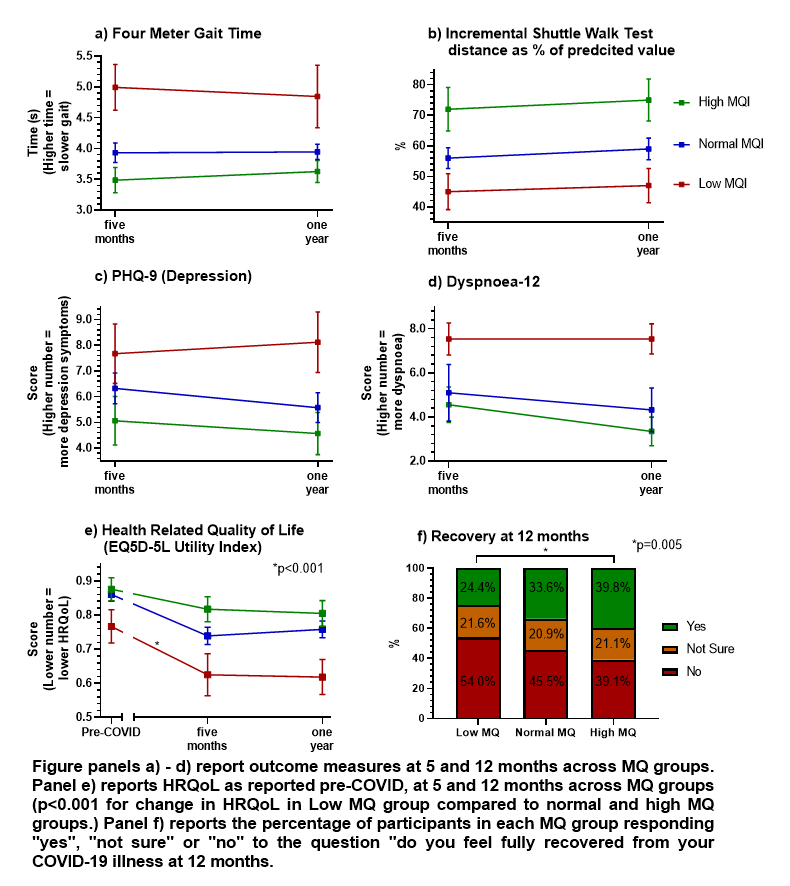Abstract
Background: Fatigue and muscle weakness are commonly reported following COVID-19 supporting a need to explore possible mechanisms.
Aims and objectives: To assess the role of muscle quality index (MQI) in ongoing symptoms and recovery from hospitalisation with COVID-19.
Methods: Hospitalised survivors for COVID-19 across 35 UK sites were prospectively recruited (PHOSP-COVID study.) MQI was assessed using the ratio of maximum hand grip strength to total body lean mass with either DXA or BIA 5 months after discharge. Participants were grouped as low MQI (lowest quintile), normal MQI or high MQI (highest quintile). Outcomes for physical performance, depression and dyspnoea were recorded at 5 and 12 months; health related quality of life (HRQoL) was also recalled for pre-COVID. Recovery was recorded at 12 months.
Results: 1,096 participants were included; mean(SD) age 57(14) years, BMI 32(7.3) and 42% female. Worse outcomes were seen among the low MQI group for all measures (fig a-d) at both time points (all p<0.05). HRQoL fell more from pre-COVID in the low MQI group(p<0.001)(fig e). At 12 months fewer participants in the low MQI group reported being recovered(p=0.005)(fig f).

Conclusions: Participants with low MQI at 5 months following hospitalisation for COVID-19 have worse outcomes up to 1 year across multiple domains. Low MQI may have a mechanistic role in ongoing symptoms and a target for interventions.